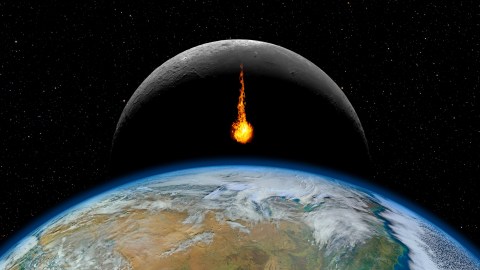Tim Brinkhof

Sometime around 193 B.C., the celebrated Roman general Scipio Africanus led a delegation from the Eternal City to modern-day Syria to tell its king, Antiochus III, to stay out of Greece. For the first time in history, this culturally and economically significant region had fallen under control of the Italians after a succession of wars with Macedonia, and they were in no mood to give it up.
Present at the Syrian court upon the delegation’s arrival was none other than Hannibal, the exiled warlord who, years earlier, had defended the wealthy city-state of Carthage against Roman encroachment and, in the process, nearly levelled the Republic before being bested by Scipio. The last time these two men came face to face with each other, they had been at war.
This time, they were both guests seated at Antiochus’ table — an unbelievably rare coincidence that led to an equally unbelievable conversation. Making friendly conversation over dinner, Scipio asked Hannibal who he thought was the greatest general of all time. Hannibal ranked Alexander the Great first, followed by a general named Phyrrus, and, finally and much to the chagrin of Scipio, himself.
At the end of the day this interaction is little more than a curiosity: an anecdote that, however fascinating, did not impact the course of history in any noticeable or meaningful way. But the same cannot be said for other “random” incidents that took place in the past, such as the case of the Communist Party of China’s failed invasion of Taiwan.
How snails saved Taiwan
In light of the ongoing war in Ukraine, western leaders not only have their eyes set on Russia but on China as well. Through military exercises, the country is giving the rest of the world reason to believe that it will try to take back control of the island of Taiwan — something China almost managed to do a century ago, were it not for a random encounter with infectious snails.
During the Chinese Civil War, which lasted from 1927 until 1950 and was fought between the Communists and the Nationalists, nearly 2 million people belonging to the latter faction fled to Taiwan. Vastly outnumbering their almost defeated enemy, the Communists wasted no time preparing an amphibious attack on the nearby island.

Parasitic worms, carried by snails in China, thwarted an invasion of Taiwan. (Credit: Gliu / Wikipedia)
To prepare for the conditions that awaited on the shore, between 30,000 and 50,000 Communist soldiers spent weeks training in canals in southern Zhejiang and northern Fujian. Unbeknownst to them, however, these canals were infested with snails carrying a virus that, upon infecting humans, causes fever, coughing, muscle aches, and bloody urine, among other symptoms.
Overnight, the Communist invasion force had been put out of commission. By the time medication arrived via the country’s heavily damaged trade networks, the Taiwanese Strait was being guarded by American warships, throwing any plans for a future invasion off the table. Thus snails — and, by extension, random chance — shaped the geopolitical climate in which we live today.
Laws of human action
Events like these cast into doubt the notion that history unfolds according to constant, observable principles. This notion, which is closely associated with faith and religion and is as old as humanity itself, gained particular traction during the Enlightenment. As soon as scientists like Isaac Newton learned that the cosmos obeyed certain laws of physics, historians started looking for laws of their own.
Belief in these laws preceded compelling evidence for their existence. “Great changes,” wrote Edward P. Cheney in 1927, in one of his many essays, “seem to have come about with a certain inevitableness; there seems to have been an independent trend of events, some inexorable necessity controlling the progress of human affairs…”
Other scholars have used different words to describe the same idea, and yet neither history nor sociology nor economy has yet managed to provide a single, overarching, irrefutable theory of human development. In light of this failure, one cannot help but wonder why we have a rudimentary understanding of something like the Big Bang, while the mechanics of history continue to be fiercely debated.
Reflecting on the relationship between history and cosmology for Aeon magazine, geologists Walter Alvarez argues that life is inherently unpredictable. “The appearance of living agents,” he explains, “took our planet beyond the realm of the phases for which physicists can discover natural laws – plasmas, gases, liquids and solids – and brought into being matter organised in far more complex ways.”
Continuity versus contingency
But just because life is unpredictable does not mean that history is completely without laws. Unpredictability can be law in and of itself, though such a law would not necessarily improve our understanding of the past. The struggle for survival, which Alvarez acknowledges as being shared by all living organisms alongside their ability to move, feed, and reproduce, could also be turned into a law.
On a cosmological level, Alvarez sees a clear distinction between continuities and random contingencies. Continuity refers to trends and cycles — processes that enable and are in turn enabled by the inherent order of things. Contingency, on the other hand, is defined as “rare events that make significant changes in history that could not have been predicted very far in advance.”
No comments:
Post a Comment